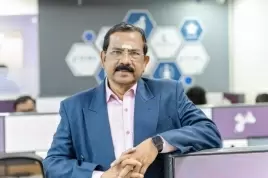There are at least 10 reasons to say ‘no’ to nuclear energy

07-October-2011
Vol 2 | Issue 40
As the fate of Koodunkulam Nuclear Power Project hangs in balance, Sam Rajappa lists out 10 reasons given by scientists who are opposed to India opting for nuclear energy.
1. Nuclear power involves radiation exposure at all stages of its fuel cycle: from uranium mining and fuel fabrication to reactor operation and maintenance; to spent-fuel handling, storage and re-processing.
2. Reactors leave a toxic trail of high-level radioactive wastes which remain hazardous for thousands of years.
 |
|
Social activist Medha Patkar addressing anti-Koodunkulam power project agitators in Tamil Nadu
|
3. The half-life of plutonium-239 produced by fission is 24,000 years. We have neither any way of storing nuclear wastes safely for such long periods nor nuetralising or disposing of them. Should we burden posterity with such a legacy?
4. Nuclear power is exorbitantly expensive if all the hidden costs are taken into account. That is why the private sector has not come forward to set up a nuclear power plant.
5. The industry claims nuclear power is safe but it is not. That is why it expends considerable effort in lobbying for laws to limit the operator’s or supplier’s liability for accidents to artificially low levels.
6. The industry acknowledges that nuclear power carries high risks of damage but wants governments, that is, the public, to subsidise and absorb them.
7. India has no independent authority that can evolve safety standards and regulate reactors for safety.
8. India’s energy security could be achieved by a careful mix of conventional with biomass, solar-thermal and wind, as experts have pointed out.
9. After Fukushima, advanced countries had a rethink on nuclear power expansion plans and imposed a moratorium on new reactors. India, on the other hand, is planning a necklace of nuclear power plants along its coastline, unmindful of what it means to its fragile ecology and displacement of traditional fishermen.
10. Last, but not the least, there are better and safer ways of boiling water to produce steam to turn turbines that generate electricity.
The author is Consulting Editor of The Weekend Leader















